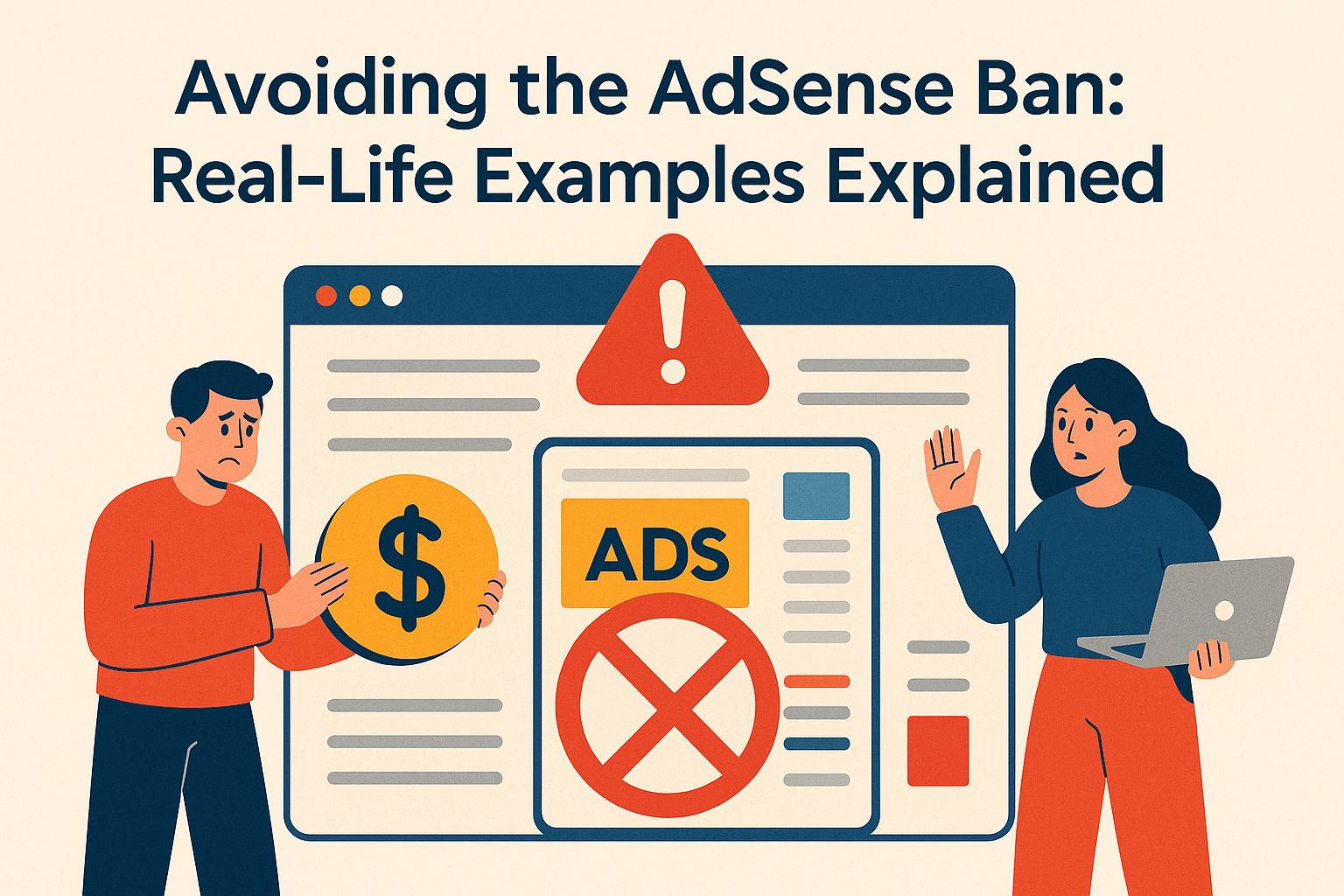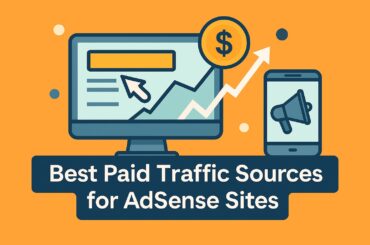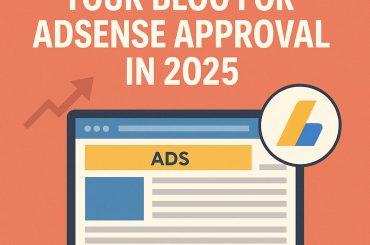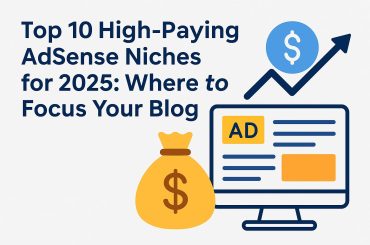Navigating the intricate world of Google AdSense can be a daunting endeavor, especially when the specter of an unexpected ban looms large. In this article, you will delve into real-life examples of what can lead to an AdSense ban, equipping you with the knowledge to safeguard your account. By understanding the pitfalls that others have encountered, you will gain valuable insights into maintaining compliance and ensuring the longevity of your online revenue stream. Prepare to explore the dos and don’ts of AdSense management, helping you steer clear of common mistakes and cultivate a thriving digital presence.
Understanding AdSense Publisher Policy
The Foundation of Policies
Understanding the AdSense Publisher Policy is essential for maintaining a compliant and successful advertising strategy. This policy is designed to create a safe and trustworthy environment for all parties involved: advertisers, publishers, and users. Violations can lead to ad delivery restrictions, account suspensions, or even termination of the AdSense account as outlined by Google.
Common Violations
Common violations include accidental or fraudulent ad clicks, placing ads near clickable elements to manipulate user activity, hosting prohibited content such as explicit adult material or illegal substances, and modifying AdSense code without permission. Furthermore, publishers should be wary of using deceptive practices, such as misrepresenting website content or intent, and should avoid promoting restricted goods or services like online gambling and unapproved pharmaceuticals.
Proactive Compliance
To avoid the AdSense ban, be proactive in monitoring compliance with Google’s content guidelines. Avoid clicking on your own ads, ensure your website’s content aligns closely with approved criteria, and monitor ad placements to avoid accidental clicks. Maintaining the original code integrity is paramount, and any modifications should be sanctioned by Google. Transparency about the content and intent of your website is also critical to ensure trust and adherence to Google’s standards.
Common Reasons for Getting AdSense Banned
Invalid Traffic and Click Activity
One of the most prevalent reasons for an AdSense ban is invalid traffic, which includes self-clicking on ads and generating fraudulent clicks either manually or through bots. It is crucial to monitor traffic sources meticulously and ensure all interactions with ads are legitimate to avoid suspicion as detailed by Google.
Policy Violations
Publishing content that breaches Google’s guidelines is another significant cause for account disablement. This encompasses hosting adult material, copyrighted content, or violent and offensive material. AdSense strictly prohibits such content, and maintaining compliance with Google’s content standards is vital to prevent drastic measures such as a ban as outlined in this guide.
Ad Implementation Issues
Incorrect ad placement is a subtle yet impactful reason you might face an AdSense ban. Placing ads near interactive elements can lead to accidental clicks, which Google perceives as attempts to manipulate earnings. Maintaining clear boundaries between content and ads ensures a satisfactory user experience and falls within AdSense’s permissible practices as suggested by WP Advanced Ads.
Content and Conduct Violations
Lastly, producing misleading content or engaging in unethical business practices can lead to account termination. Transparency and adherence to Google’s policies regarding the nature of your site’s content are non-negotiable elements in your digital strategy as emphasized by Quora contributors.
Can Your AdSense Account Get Banned?
Understanding AdSense Account Bans
Yes, your AdSense account can indeed get banned, and understanding the reasons is crucial for prevention. The most common reason for an account suspension is generating invalid traffic, which can occur from both inadvertent user activities and intentional deceitful practices. Google rigorously analyzes all clicks and impressions to identify such patterns that might artificially raise advertiser costs or publisher earnings. Invalid traffic includes activities such as clicking on your own ads, having one or more users repeatedly clicking on ads, and generating automated or bot traffic as outlined by Google’s support guide.
Policy Violations
In addition to invalid traffic, numerous policy violations can result in an AdSense ban. These violations encompass a range of activities, from displaying sexually explicit content to having more ads than editorial content on a page. Deceptive ad placement and hosting illegal content are also among the reasons for account disablement. As emphasized in the AdSense policy guidelines, maintaining compliance with Google’s publisher policies is imperative to prevent account suspension.
Preventive Measures
To avoid an AdSense ban, it’s essential to implement measures that mitigate risks associated with invalid and unwanted traffic. Publishers should regularly conduct website audits, ensuring gaps and anomalies in traffic are swiftly addressed. Moreover, focusing on acquiring quality traffic from reliable sources and collaborating with ad networks that provide robust invalid traffic (IVT) detection and prevention mechanisms are key strategies. Investing in solutions like Traffic Cop, which filters non-human traffic, can further bolster your site’s protection against traffic issues, as advised by experts in the field such as Monetize More. By maintaining these practices, you can protect the integrity of your AdSense account and secure ongoing revenue generation.
Why Is Google AdSense Blocked?
Common Violations Leading to AdSense Bans
Understanding why Google AdSense might block an account is crucial for maintaining a healthy partnership with the platform. Common violations that could lead to a ban include invalid clicks or suspicious activity, such as click fraud or unusual traffic patterns. This behavior triggers red flags within Google’s sophisticated monitoring system, preventing unethical manipulations that undermine the integrity of the program. Additionally, serious violations like publishing copyrighted materials or promoting hate speech, illegal activities, or hosting adult content can immediately lead to an account being disabled.
Repercussions of a Ban
Once banned, the ramifications can be substantial. An AdSense ban is often described as a “kiss of death,” given that Google seldom reinstates an account, with exceptions being extremely rare. Even after attempting an appeal, most users find their accounts remain permanently disabled. The impact of a ban can also extend to connected sites. For example, purchasing a website linked to a banned account or attempting to associate with such sites could almost certainly block monetization opportunities with AdSense, potentially impacting one’s reputation or alternative revenue channels.
Avoiding Common Pitfalls
To prevent falling into such situations, it’s advisable to build a diverse advertising model and comply strictly with AdSense policies. Establish a more robust web presence by delving into alternative networks and strategies that don’t solely rely on AdSense, minimizing the risks associated with single-source dependency. Experts suggest exploring Google Ad Manager or other ad networks as viable alternatives, fostering a more sustainable and secure revenue model.
How to Prevent Your AdSense Account from Getting Banned
Understand Google’s Policies
A key preventive measure to avoid the dreaded AdSense ban is to thoroughly understand Google’s policies. These guidelines are comprehensive and cover various aspects, such as acceptable content and methods for advertising interaction. Violating these conditions, deliberately or accidentally, could result in account suspension. Regularly reviewing Google’s AdSense program policies, including any updates, ensures ongoing compliance and reduces risks associated with policy breaches.
Monitor Traffic and Ad Interactions
Keeping a close eye on your website’s traffic and user interactions with ads is imperative. Google is vigilant about invalid traffic, including self-clicks or incentivizing others to engage with ads. Employing analytical tools to track site traffic can help identify suspicious activities, ensuring any invalid traffic is quickly addressed. It’s essential to avoid using automated solutions that might artificially inflate ad views or clicks (source).
Maintain Content Integrity
Your site content must align with Google’s quality standards. Avoid hosting copyrighted material without permissions, promoting explicit content, or engaging in deceptive ad placements. Regular audits of your content can help maintain integrity and compliance with these guidelines. Furthermore, refrain from placing ads too closely to interactive elements on your site, which can lead to accidental clicks (source).
By adhering to these practices, you significantly lower the risk of facing an AdSense ban.
How to Earn $100 Per Day from AdSense?
Choose a Profitable Niche
To achieve consistent earnings from AdSense, selecting a profitable niche is crucial. This involves identifying areas with high advertiser demand and aligning them with topics you are passionate about. Niches such as finance, health, and technology often offer lucrative opportunities due to their robust market presence and competitive bidding among advertisers. This focused approach ensures you attract a steady stream of visitors and more chances for ad clicks.
Optimize Your Website with SEO
Implementing effective search engine optimization (SEO) strategies is vital in increasing your website’s visibility on search engines. This includes conducting thorough keyword research, optimizing your content for these keywords, and ensuring you build high-quality backlinks to improve your domain authority. A well-optimized site not only drives organic traffic but also enhances your AdSense earnings potential by attracting more frequent visits and engagements.
Utilize a Multichannel Traffic Strategy
Diversifying your traffic sources can greatly influence your AdSense revenue as supported by research. Leverage social media platforms, engage in email marketing, and write guest posts on related blogs. Each channel plays a distinct role in drawing visitors to your site, thereby boosting page views and ad clicks. Consistent traffic is key to sustaining a daily $100 income from AdSense.
Monitor and Experiment with Ad Placements
Ad placement experimentation is another critical factor in maximizing your AdSense earnings. Regularly analyzing which ad formats and positions yield the highest click-through rates (CTR) can lead to increased revenues. Consider using a mix of display and text ads and ensure they are mobile-friendly, as a large portion of web traffic now comes from mobile devices. This ongoing adjustment process, supported by Google AdSense analytics, helps optimize your revenue while enhancing user experience.
Adopting these strategic approaches not only helps avoid an AdSense ban but also paves the path to earning $100 per day consistently.
Frequently Asked Questions About AdSense Ban
What Causes an AdSense Ban?
Understanding the root causes of an AdSense ban is crucial. Common reasons include generating invalid traffic, hosting inappropriate content, or breaching AdSense policies by modifying ad placements or encouraging ad clicks as noted by Google’s guidelines. Running multiple AdSense accounts and using anonymous or dubious traffic sources can also lead to account suspension according to expert advice. These actions are considered deceptive and can compromise the integrity of Google’s advertising network.
Can You Prevent an AdSense Ban?
Yes, prevention is better than cure. Ensure that your content and website comply with Google’s policy standards. Do not click on your own ads and discourage others from doing so. It’s essential to monitor traffic sources closely to prevent suspicious activities as stressed by industry best practices. Utilizing ad fraud protection tools like Click Fraud Protection can further safeguard your account.
What Steps Can Be Taken If Banned?
If you face an AdSense ban, don’t panic. First, thoroughly review AdSense policies to understand the violation. Rectify the issues identified, then submit a detailed appeal to Google, explaining the steps taken to resolve the problems. Regular consultation with the AdSense support forum can provide additional insights into troubleshooting. Although there’s no guarantee, addressing violations effectively increases the likelihood of a successful appeal.
Conclusion
As you navigate the complexities of AdSense policies, it becomes crucial to learn from real-life examples to avoid costly mistakes. By understanding the pitfalls that led others to face bans—such as invalid click activity, content violations, and unauthorized traffic sources—you can safeguard your own account. Adhering to Google’s guidelines not only ensures compliance but also fosters a sustainable revenue stream. Remember, vigilance and ethical practices are key to maintaining a successful AdSense partnership. By staying informed and proactive, you can confidently steer clear of potential pitfalls and continue to thrive in the ever-evolving digital advertising landscape.





